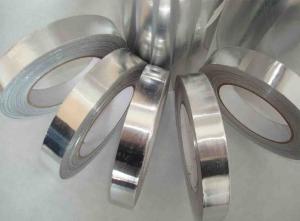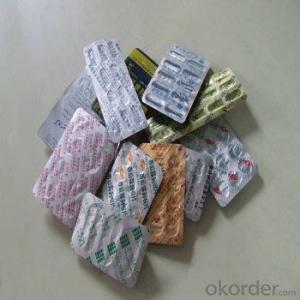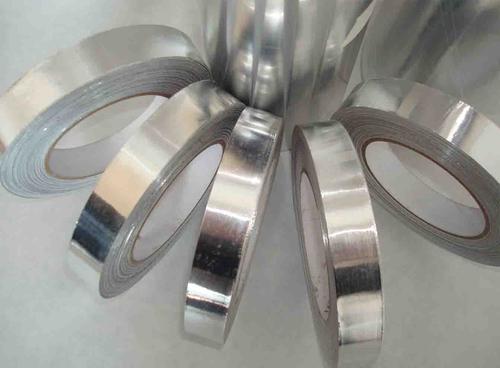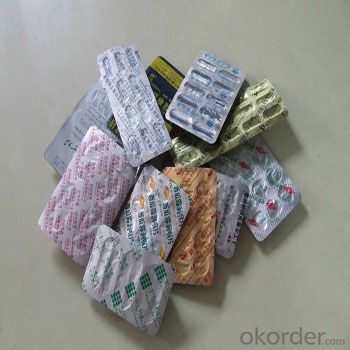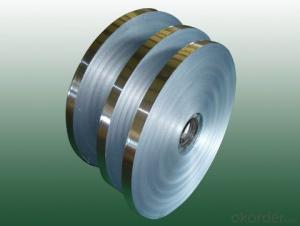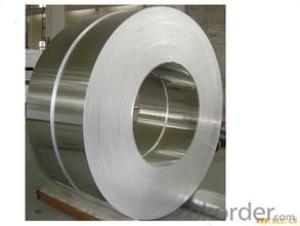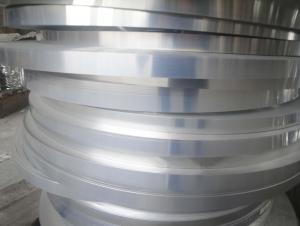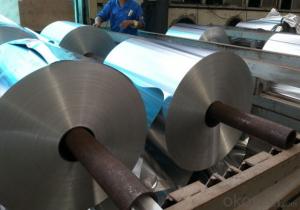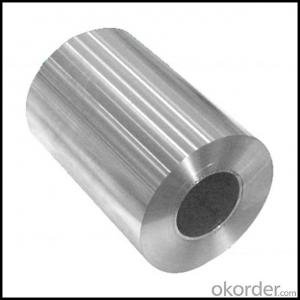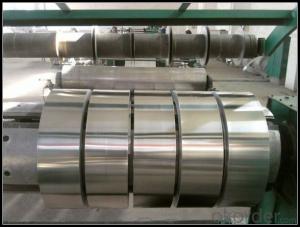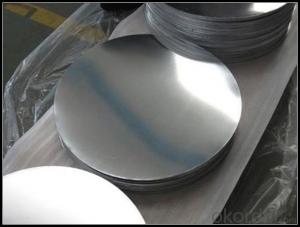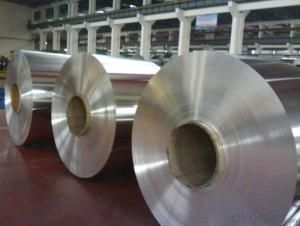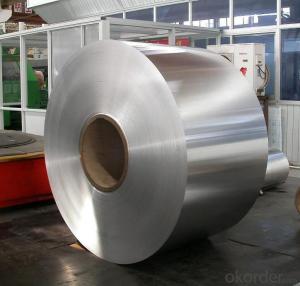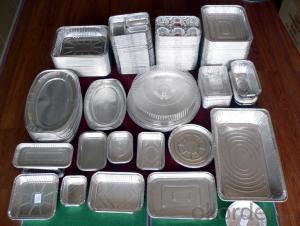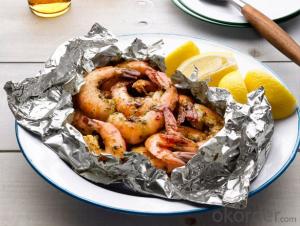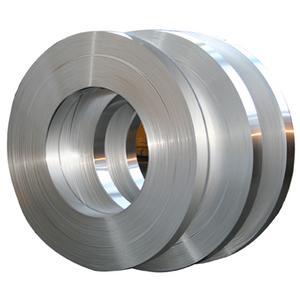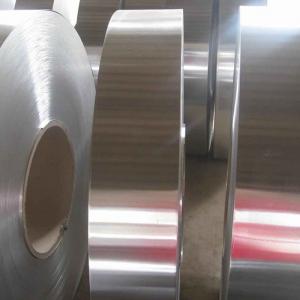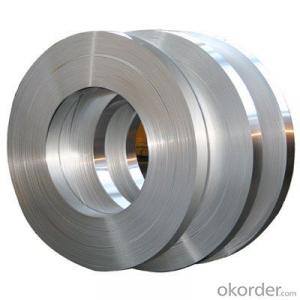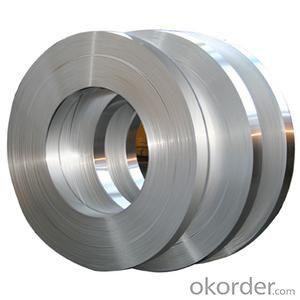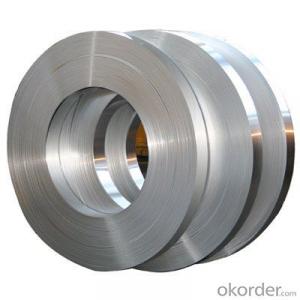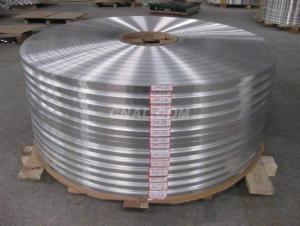Continours Casting Aluminium Coil Household Foil Aluminium Containers
- Loading Port:
- Shanghai
- Payment Terms:
- TT OR LC
- Min Order Qty:
- 5 m.t.
- Supply Capability:
- 1000 m.t./month
OKorder Service Pledge
OKorder Financial Service
You Might Also Like
Specification
1.20 years OEM service, custom order available
2.Excellent barrier
3.FDA, SGS
Material: Different materials available for option - Food grade
Glossy finish: PET/AL/PE, PET/VMPET/PE, OPP/VMPET/PE
Transparent: PET/PE, NY/PE,PET/CPP
Matte finish: OPP/AL/PE,PET/CPP, PET/NY/PE
More Details
1. Original factory price, high quality, fast delivery.
2. ISO9001:2008; ISO14001:2004.
3. Material: PET/ AL/ PE; NY/AL/PE,OPP/CPP,PE/PET.etc.
4.Moisture proof, oxygen barrier, nontoxic.
5. Available in different material to suit for different products’ package
6.Customized structures, size, styles are welcome.
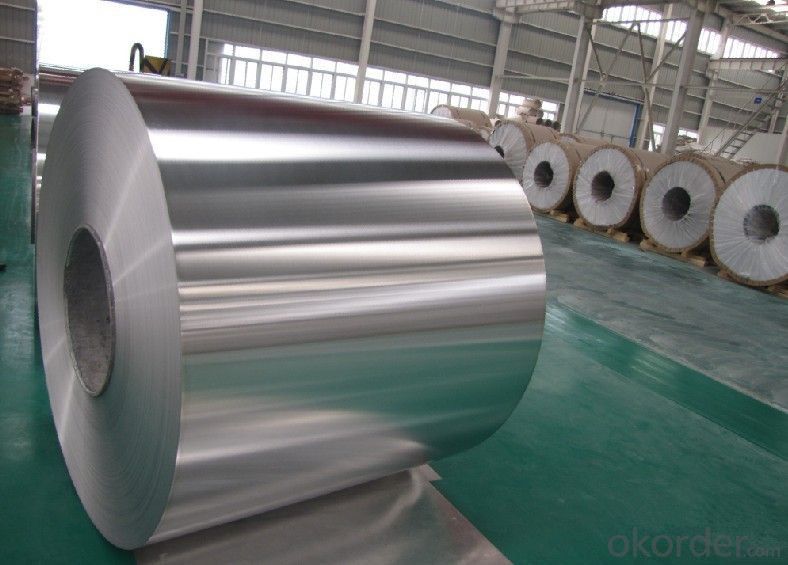
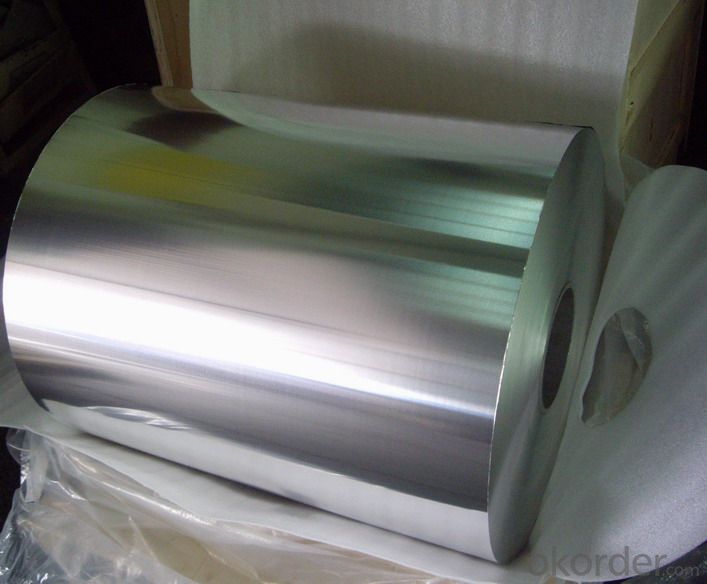
FAQ
①How about your company?
A world class manufacturer & supplier of castings forging in carbon steel and alloy steel,is one of the large-scale professional investment casting production bases in China,consisting of both casting foundry forging and machining factory. Annually more than 8000 tons Precision casting and forging parts are exported to markets in Europe
,America and Japan. OEM casting and forging service available according to customer’s requirements.
②How to guarantee the quality of the products?
We have established the international advanced quality management system,every link from raw material to final product we have strict quality test;We resolutely put an end to unqualified products flowing into the market. At the same time, we will provide necessary follow-up service assurance.
③How long can we receive the product after purchase?
The purchase of product within three working days, We will arrange the factory delivery as soon as possible. The pecific time of receiving is related to the state and position of customers.Commonly 7 to 10 working days can be served.
- Q: This question asks about the impact of temperature on the performance of aluminum strips used in construction.
- <p>Temperature significantly affects the performance of aluminum strips in construction. At low temperatures, aluminum becomes more brittle, reducing its ductility and increasing the risk of cracking or breaking under stress. Conversely, high temperatures can cause aluminum to lose strength and become more susceptible to deformation. It's crucial to maintain optimal working temperatures to ensure the structural integrity and longevity of aluminum components. Additionally, temperature fluctuations can lead to thermal expansion and contraction, affecting the fit and alignment of aluminum strips, potentially causing gaps or misalignments in constructions.</p>
- Q: Is it possible to use aluminum strips as a material for insulating a building?
- <p>Aluminum strips are not typically used for building insulation. Insulation materials are designed to resist heat flow, and aluminum is a good conductor of heat, which means it would not effectively insulate a building. Common insulation materials include fiberglass, cellulose, and foam, which are poor conductors of heat and can effectively reduce heat transfer. Aluminum strips might be used in construction for other purposes, such as reinforcement or as part of a vapor barrier, but not for their insulating properties.</p>
- Q: Is it possible to use aluminum strips in decorative applications?
- <p>Yes, aluminum strips can be used for decorative purposes. They are lightweight, durable, and available in various colors and finishes, making them suitable for a range of decorative applications. Aluminum strips are often used in interior design for trims, moldings, and accents, as well as in exterior applications such as facades and signage. Their resistance to corrosion and ease of maintenance also make them a practical choice for decorative elements in both residential and commercial settings.</p>
- Q: Explain how aluminum strips can impact the fuel efficiency of a vehicle.
- <p>Aluminum strips, when used in the context of vehicle fuel efficiency, typically refer to the use of aluminum in vehicle construction to reduce weight. Aluminum is a lightweight material with high strength, which can significantly decrease the overall weight of a vehicle. By reducing the weight, the engine doesn't have to work as hard to move the vehicle, leading to less fuel consumption. Additionally, lighter vehicles can accelerate and decelerate more quickly, which can also contribute to improved fuel efficiency. However, it's important to note that the impact on fuel efficiency can vary based on the vehicle's design, driving conditions, and other factors.</p>
- Q: Is it possible to utilize aluminum strips in the construction of solar panels?
- <p>Yes, aluminum strips can be used in the construction of solar panels. They are often utilized as a component in the framing or as a conductive material in the solar cell's structure. Aluminum is lightweight, durable, and has good thermal conductivity, which makes it suitable for various applications within solar panel design. It can be used to create a protective frame, enhance heat dissipation, or serve as a part of the electrical conductors within the panel.</p>
- Q: Is it possible to use aluminum strips for decking purposes or for a neighbor's house?
- <p>Yes, you can use aluminum strips for your deck or your neighbor's house, provided it is for decorative or structural purposes approved by local building codes. Aluminum is known for its durability, resistance to corrosion, and low maintenance requirements, making it a popular choice for outdoor applications like decks. However, it's important to check with local regulations and consult with a professional to ensure the proper installation and use of aluminum strips to avoid any safety or legal issues.</p>
- Q: This question asks about the environmental impact of aluminum strips, which are thin pieces of aluminum metal.
- <p>Aluminum strips can have both positive and negative effects on the environment. On the positive side, aluminum is highly recyclable, and using recycled aluminum reduces the need for mining new bauxite, thus conserving natural resources and reducing the environmental impact of mining. However, the production of aluminum, especially from raw materials, is energy-intensive and contributes to greenhouse gas emissions. Additionally, improper disposal of aluminum can lead to pollution, as it does not degrade naturally and can accumulate in landfills. The environmental impact can be mitigated by promoting recycling and responsible disposal practices, as well as by using aluminum more efficiently in products to extend their lifespan and reduce waste.</p>
- Q: What are the various classifications of aluminum strip based on their properties and applications?
- <p>Aluminum strips are classified into different grades based on their alloy composition, mechanical properties, and applications. Common grades include 1000 series (99% pure aluminum), 3000 series (aluminum-manganese alloys), 5000 series (aluminum-magnesium alloys), and 6000 series (aluminum-magnesium-silicium alloys). Each grade has specific characteristics, such as corrosion resistance, formability, and strength, making them suitable for various industries like construction, automotive, and packaging.</p>
- Q: Is it possible to use aluminum strips for creating decorative accents or wall art?
- <p>Yes, aluminum strips can be used to create decorative accents or wall art. They are lightweight, durable, and come in various colors and finishes, making them a versatile material for crafting. You can bend, cut, and shape aluminum strips into different designs to suit your aesthetic preferences. Additionally, they are easy to install and can be used in combination with other materials to create unique and eye-catching wall art pieces.</p>
- Q: This question asks for the primary applications or purposes of using aluminum strips.
- <p>Aluminum strips are primarily used in various industries due to their lightweight, corrosion resistance, and high strength-to-weight ratio. They are commonly used in construction for framing and cladding, in the automotive industry for vehicle bodies and parts, in aerospace for aircraft components, and in electrical applications for wiring and conductors. Additionally, aluminum strips are employed in packaging, such as food and beverage cans, and in the manufacturing of electronic devices and heat exchangers. Their versatility makes them a popular choice for many applications where durability and performance are required.</p>
Send your message to us
Continours Casting Aluminium Coil Household Foil Aluminium Containers
- Loading Port:
- Shanghai
- Payment Terms:
- TT OR LC
- Min Order Qty:
- 5 m.t.
- Supply Capability:
- 1000 m.t./month
OKorder Service Pledge
OKorder Financial Service
Similar products
Hot products
Hot Searches
Related keywords
